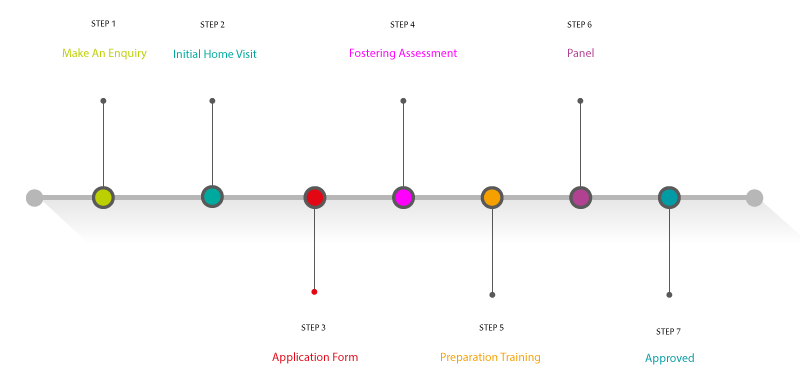Caring Hearts Fostering is committed to the recruitment of carers who share the agency’s goal of delivering exceptional standards of care for children and young people.
Caring Hearts Fostering will provide prospective foster carers with information in regards to fostering and the process in becoming a foster carer. We are ready to respond to any concerns or questions you may have.
Where an enquiry is taken forward, a detailed information pack will be sent out to you. Following receipt of the information pack, if you decide to continue the process, an initial home visit will be arranged where a qualified social worker will conduct a basic assessment of the suitability of the home and the prospective carers.
This initial assessment will also provide an opportunity for the potential carer to ask any further questions they may have and discuss the process of being assessed. Where the initial home visit is successful, the potential foster carer will be asked to complete a detailed application form that includes information about themselves and their family. They will be requested to grant Caring Hearts Fostering consent for the necessary checks and enquiries to be completed to verify their identity and suitability to foster. Statutory checks include a criminal record check, medical check, local authority checks and references from three personal referees, adult children, ex-partners, employers, and schools where birth children are under the age of 18 years old as well as adult birth children whether they are living at home or elsewhere.
The assessment process will be carried out in two stages and will typically take 3-4 months, and possibly up to six months depending on the applicants’ circumstances. In addition to home assessments and an interview by a fostering panel, applicants will also be required to attend a 3-day preparation-training course.
